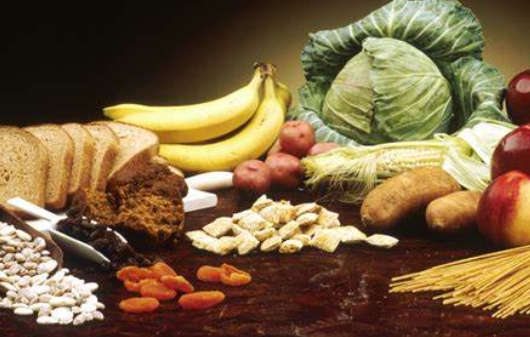When it comes to maintaining good health, we often hear about the importance of eating fruits, vegetables, and whole grains. One of the main reasons for this is their high fiber content. Fiber is a crucial component of a healthy diet, not just for digestive health, but for overall well-being. It plays a vital role in supporting the digestive system, helping to prevent various digestive disorders, and even promoting heart health. By understanding the benefits of fiber and how it works, you can make more informed choices to improve your health and digestion.
Dietary fiber is the indigestible part of plant-based foods that passes through the digestive tract largely unchanged. It is typically divided into two types: soluble and insoluble fiber. Both types of fiber offer unique benefits to the body and are essential for maintaining digestive health.
Soluble fiber dissolves in water and forms a gel-like substance as it moves through the digestive system. This type of fiber can help regulate blood sugar levels, lower cholesterol, and support healthy bowel movements. It is found in foods like oats, beans, lentils, apples, carrots, and citrus fruits. Soluble fiber helps to slow digestion, providing a feeling of fullness and stabilizing blood sugar levels, which can be particularly beneficial for individuals with diabetes or those looking to manage their weight.
Insoluble fiber, on the other hand, does not dissolve in water and helps to add bulk to the stool. It plays a crucial role in promoting regular bowel movements and preventing constipation. Insoluble fiber also supports the movement of food through the digestive tract, making it easier for the body to eliminate waste. You can find insoluble fiber in foods such as whole grains, wheat bran, potatoes, and the skins of fruits and vegetables like apples and cucumbers. By consuming enough insoluble fiber, you can help maintain regularity and prevent the discomfort and bloating associated with constipation.
Getting enough fiber in your diet can help prevent a range of digestive issues. Constipation is one of the most common problems that fiber helps alleviate. By absorbing water and adding bulk to the stool, fiber makes it easier for the body to pass waste through the intestines, preventing the discomfort and straining that come with constipation. Insoluble fiber, in particular, plays a key role in this process, promoting healthy bowel movements and reducing the risk of developing conditions like hemorrhoids or diverticulosis.
In addition to supporting bowel regularity, fiber also plays a role in gut health. The human digestive system is home to trillions of bacteria that make up the gut microbiome, which plays a vital role in digestion, immune function, and overall health. A diet high in fiber, particularly from fruits, vegetables, and whole grains, helps to nourish these beneficial bacteria. Prebiotics, a type of fiber found in foods like garlic, onions, and bananas, serve as food for the good bacteria in the gut, helping to maintain a healthy balance of gut microbes. A healthy gut microbiome is essential for digestion, nutrient absorption, and immune system function.
Fiber has also been shown to help reduce the risk of gastrointestinal diseases. A high-fiber diet has been associated with a lower risk of conditions such as irritable bowel syndrome (IBS), inflammatory bowel disease (IBD), and colorectal cancer. The exact mechanisms behind these protective effects are still being studied, but it is believed that fiber helps to maintain a healthy digestive tract by reducing inflammation, improving gut motility, and promoting the growth of beneficial gut bacteria.
Apart from digestive health, fiber can have a positive impact on other aspects of health. Heart health is one area where fiber plays an important role. Soluble fiber, in particular, helps lower blood cholesterol levels by binding to cholesterol and carrying it out of the body. This can reduce the risk of heart disease by preventing the buildup of cholesterol in the arteries. Foods like oats, beans, apples, and flaxseeds are great sources of soluble fiber and can help support cardiovascular health.
Fiber can also help with weight management. High-fiber foods are often low in calories but high in volume, which means they can help you feel full and satisfied without overeating. Additionally, fiber slows down digestion, which can help regulate appetite and prevent overeating. Including more fiber-rich foods in your diet can help control hunger and prevent excessive snacking, making it easier to maintain a healthy weight.
Despite the many benefits of fiber, most people do not consume enough of it. The recommended daily intake of fiber is around 25 grams for women and 38 grams for men, but the average American consumes only about 15 grams per day. To increase fiber intake, try incorporating more whole foods into your meals, such as whole grains, vegetables, fruits, nuts, and seeds. It’s also important to increase fiber intake gradually and drink plenty of water, as consuming too much fiber too quickly can lead to bloating and gas.
In conclusion, fiber is an essential nutrient that plays a crucial role in supporting digestive health and overall well-being. By consuming a diet rich in both soluble and insoluble fiber, you can improve digestion, prevent constipation, reduce the risk of gastrointestinal diseases, and promote heart health. Additionally, fiber can help with weight management and nourish the beneficial bacteria in your gut. For optimal digestive health, aim to incorporate a variety of fiber-rich foods into your daily diet, and be sure to drink plenty of water to support the digestion process. A fiber-packed diet is a simple yet effective way to improve health and keep your digestive system running smoothly.





